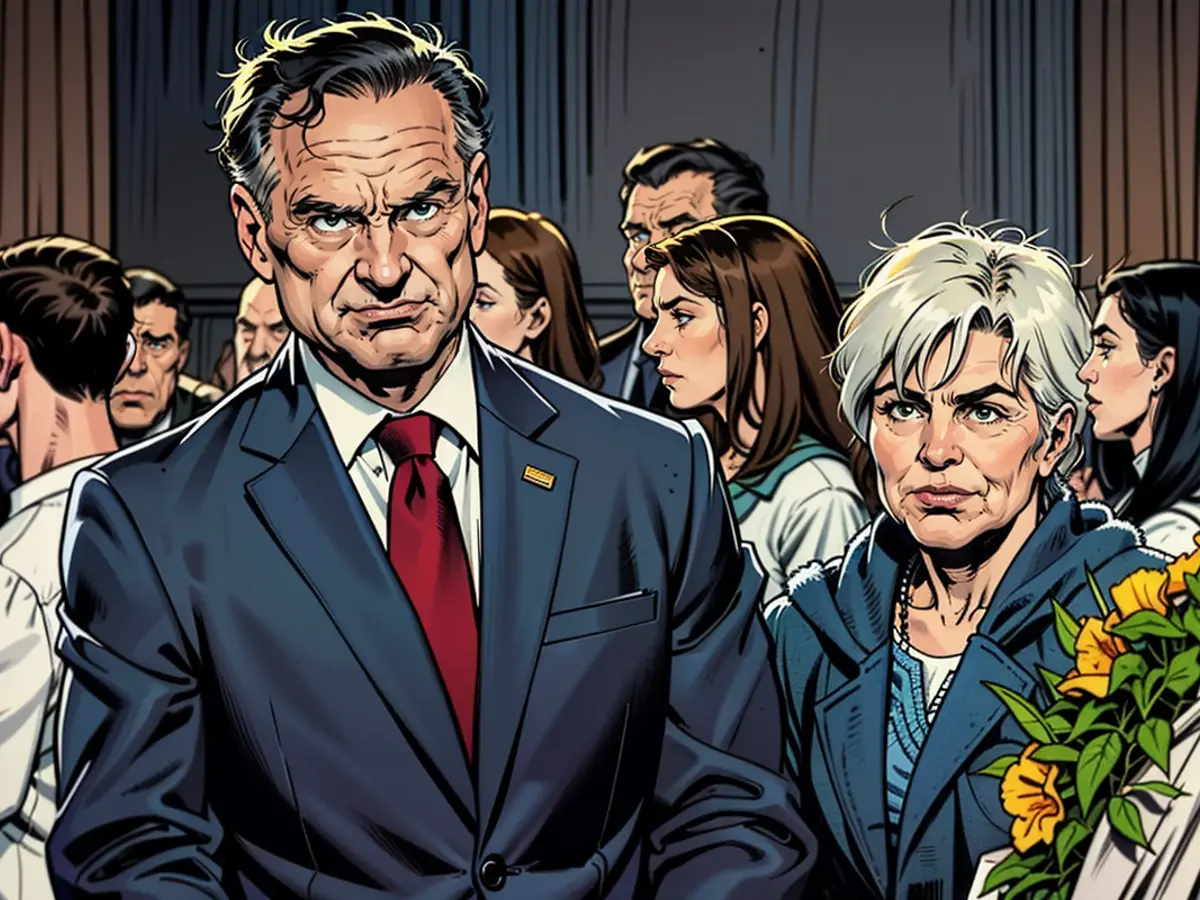The hidden Alito recording offers striking insights.
However, as someone living during this critical time for our democracy, I am thankful for the details this individual revealed on Monday, specifically regarding the far-right and religious beliefs of Alito.
Alito has often supported conservative religious organisations. He agreed with Windsor's statement about a war between those with faith and those without, stating "I agree with you. I agree with you." This raises questions about his impartiality concerning the separation of church and state, and if his judgments would push us closer to a theocracy.
I'm aware that embracing an action and appreciating its outcomes result in a significant conflict. However, confronting these contradictions honestly is essential for ensuring professional journalism standards while also safeguarding democracy.
My difficulty lay in morally justifying Windsor's actions and my response to them: If I accepted or advocated for what she accomplished, I'd have to accept the work executed by Project Veritas, a right-wing activist group founded by James O'Keefe. That concept is highly unpalatable.
Consider the instance where he and another activist, Hannah Giles, went "undercover" in Baltimore, pretending to be a prostitute and her pimp to expose alleged corruption within ACORN, a community-based activism group, in 2009.
At the time, my perspective was clear. I condemned their actions in print and on televised discussions: Journalists should never deceive or distort themselves to obtain information. Clear.
But my clarity has waned. As a journalist and ethicist, I still believe deceit is unacceptable to extract facts. I wouldn't do it. However, with the impending Supreme Court ruling on whether Trump can claim presidential immunity from federal charges related to his alleged participation in the January 6th Capitol incursion, we require all available information about those making such rulings. The justices have been tight-lipped.
As a voting citizen, I welcome any insights into Alito's perspectives and behaviours, especially considering the 2024 election and impending decisions that could deeply impact voting outcomes. Before the widespread distribution of Windsor's recording, Alito had already declared that he wouldn't recuse himself from ruling on Trump's immunity case, emphasising how crucial this information is.
The presence of an upside-down American flag (a symbol for those doubting the 2020 election's results) outside the Alito residence after the Jan. 6th uprising, as reported by The New York Times, casts doubt on Justice Alito's impartiality regarding the 2020 election and Trump's baseless assertions of having been stolen from him. Several insurgents carried identical flags.
This entanglement is part of a larger dilemma: How should we cover people we believe are attempting to harm democracy?
While there is an argument for what Windsor achieved, she did not consider herself a journalist. Should we not evaluate her by journalistic criteria if she insists she's not one? Also, consider all the mainstream media outlets that disseminated her findings, including The New York Times. Did they fail to verify the authenticity of the recordings themselves before publishing it? This appears hypocritical if we label her a liberal activist and filmmaker.
Though what Windsor revealed doesn't provide as much information as ProPublica and The New York Times about the supreme court's concealed tactics and questionable ethics, it did make me doubt the extent of Alito's right-wing religious leanings. This is significant, especially for reproductive decisions and unrelated cases before the court.
The work of activist filmmakers has come to play a crucial part in assisting voters in making intelligent decisions. But it's crucial to recognise this differing role and be transparent regarding whether a news organisation has confirmed or corroborated their findings.
When looking at Windsor's work compared to Project Veritas, you'll find that she deceived by claiming to be a conservative Catholic and interviewed Alito with questions that implied a shared stance against secular liberals while secretly recording their responses. Although the strategy was similar, Maryland has a rule against secret recordings and needs both parties to agree. In contrast, Washington, DC, where Windsor's recordings were made, doesn't have such regulations. She didn't violate any legal guidelines in obtaining her information. Although she may have violated standard journalistic practices, she didn't break any laws when exposing us to the inner workings of Alito's thoughts.

Read also:
Although the recording raises questions about Alito's impartiality and potential bias, different opinions exist on whether Windsor's deceptive tactics to obtain the recording align with journalistic standards.
Regardless of Windsor's methods, her recording has fueled further discussions about Alito's religious beliefs and their potential influence on his judicial decisions.







